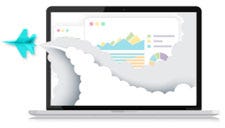What You'll Learn
Who Should Attend
Anyone in the institution who is involved in small business lending, particularly the application part of the process needs this course. This could include commercial lenders, processors, front-line staff, commercial lending support staff, and related employees, as well as compliance professionals, auditors, risk managers and officers, and line of business managers. Also, executive management and even Directors would benefit from understanding the requirements of this extensive new rule.

Instructor Bio
Continuing Education Credit Information
1071 Small Business Data Collection and Submission: Where Are We Now? has been approved for 2.5 CRCM credits. This statement is not an endorsement of this program or its sponsor. Credits are redeemable for both Live and OnDemand viewing. For questions on certificates, please email support@oncourselearning.com. Certification holders must report these credits at https://aba.csod.com.


